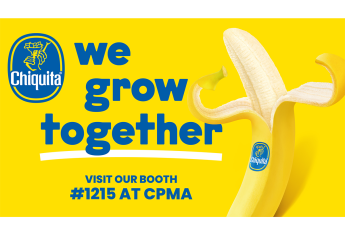Growing consumer interest driving social responsibility movement

This article is part of The Packer's special content series People First: A Spotlight on Social Responsibility.
How does a company go from generally caring about its employees and endeavoring to treat them well to having a defined structure and accountability around those aims?
Often, that shift happens in response to requests from customers, said Hugo Hays, global director of compliance and food safety for international banana behemoth Fyffes. As retailers see consumer interest in social responsibility grow, they ask for documentation and verification of supplier efforts in that area.
That demand has led to the rise of certifications like those available from Equitable Food Initiative, Fairtrade International, Fair Trade USA, GLOBALG.A.P., Sedex and others. A supplier with a diverse customer base, then, may need to get certified with multiple organizations. This is more the case in the U.S. than in Europe, Hays said.
He noted that this divergence is related to the difficulty in getting U.S. retailers together to discuss what elements might be included in a common social responsibility framework; anti-trust regulations pose a hurdle for companies to gather to discuss even “pre-competitive” issues, Hays said.
“That, I think, is what set the course for the U.S. being a bit more independent in terms of different retailers asking for different things and not necessarily aligning so much, so you have a wider variation, I feel, of some retailers asking for a lot and actually positioning themselves as that being their added value, and other retailers basically going for the basics, the minimum,” Hays said.
Across the spectrum, however, retailers are generally asking for more related to social responsibility now than they were a few years ago.
The corporate social responsibility department is moving closer to the buying department, with non-financial components getting more consideration than in the past, Hays said.
In general, certifications exist to fill a gap between what society expects and what legislation requires, Hays said. He gave as an example the progression of food safety; one of the first components that private standards required was traceability, and now traceability, as a key piece of food safety, is regulated much more closely.
Some kind of alignment on social responsibility would be helpful to suppliers, Hays said, simply because of the overlap that comes with trying to address multiple standards.
“All of us farmers, all of us producers, we need to make it abundantly clear to our clients that, if possible, we should have more consolidation within the standards because each standard incorporates more audits, more visits, more days spent receiving people on your farm, more work trying to fit different answers to the same questions,” Hays said.
Harmonization would also allow for a stronger message when it comes to marketing, he suggested, because consumers wouldn’t have to wonder what the differences are between the various certifications.
The long-term question is whether the consumer demand for social responsibility will translate into a realized willingness to pay more for products. A key topic in the global social responsibility conversation is living wage, Hays said, and that number varies from country to country. Ultimately, suppliers looking to pay a living wage will need to charge more for their products.







